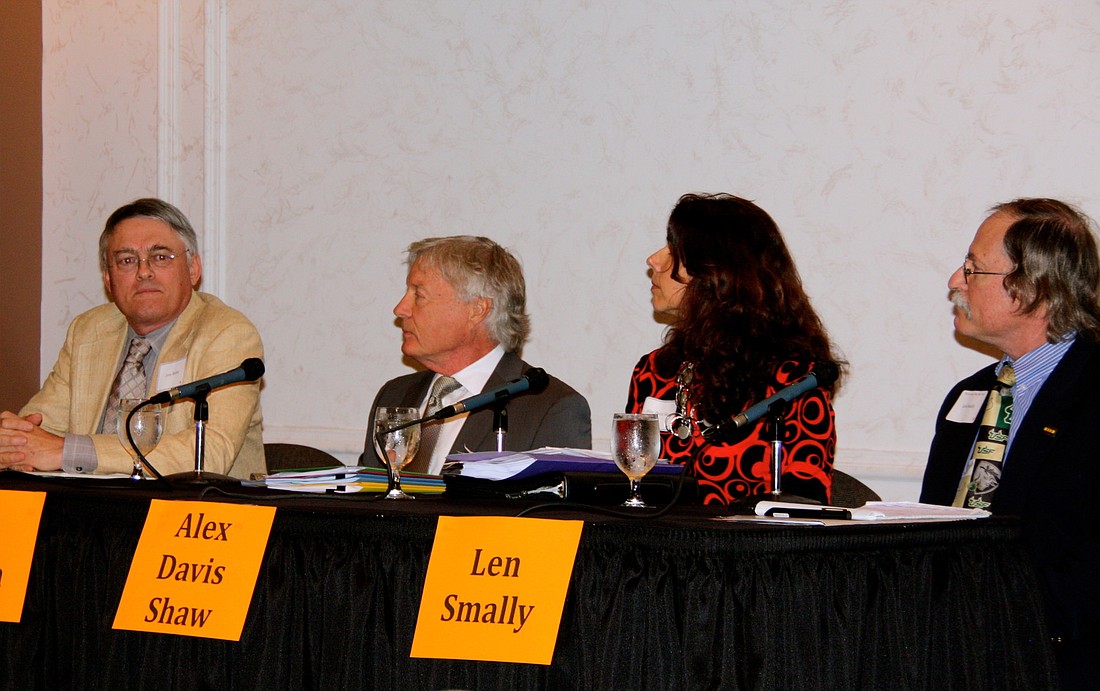- December 23, 2024
-
-
Loading

Loading

The Big Pass dredge debate took center stage at Thursday’s Tiger Bay meeting, with camps on both sides of the debate digging in on their positions.
Former County Environmental Services Director Rob Patten and environmental activist Jono Miller were originally set to square off against representatives of the U.S. Army Corps of Engineers in a potentially highly charged debate — referred to as “Sand Wars” in the Tiger Bay program — on the merits and potential risks of the Corps' proposal to mine the Big Pass shoal to renourish Lido Beach.
Last Friday, however, the Army backed out of the meeting. Sarasota City Engineer Alex DavisShaw and Len Smally, former director of public works for the city of Longboat Key, stepped up to defend the project on behalf of the city of Sarasota.
New College Professor Dr. Frank Alcock, the event's moderator, said the Army Corps announced its decision to not attend the debate last Friday, claiming it still had to finalize the details of its plan before it defended its merits in a public forum.
Miller questioned the Corps' absence Thursday, claiming the Corps should be prepared to defend a project it began working on in 1997.
"The Corps has left the city standing at the altar," Miller said.
Miller and Patten, both opponents of the dredge, said the Army's plans had not been properly vetted by the area's stakeholders and community groups.
"There's a huge array of stakeholders that have not been heard from," Patten said. "This is potentially a reckless act. It will impact all Sarasota residents."
DavisShaw defended the merits of the project, calling it a necessity for the safety of Lido Beach in the event of a hurricane, and pointing to a decade of scientific studies that verify its "minimal" impact on the environment.
DavisShaw added that contingency plans were being included in the Corps’ final proposal, outlining possible courses of action should the project result in unintended consequences to nearby Siesta Key.
“As part of this project, not only will they (Army Corps) have to monitor Lido, but Siesta and Big Pass as well,” DavisShaw said.
Patten said the contingency plans would likely do little to reverse whatever damage the dredge might potentially produce.
“You don't get a do-over in this case,” Patten said. “I don't call it a contingency plan. I call it giving you the good news or the bad news after it has already happened.”
Smally defended the scientific studies used to justify the project, adding that Lido Beach was in dire need of renourishment. He also referenced the Army Corps' offer to foot 60% of the project’s total $22 million cost with federal funding.
“It would be a shame if anything happened to derail his project,” Smally said. “Because it’s a gift from the Corps.”
Contact Nolan Peterson at [email protected]